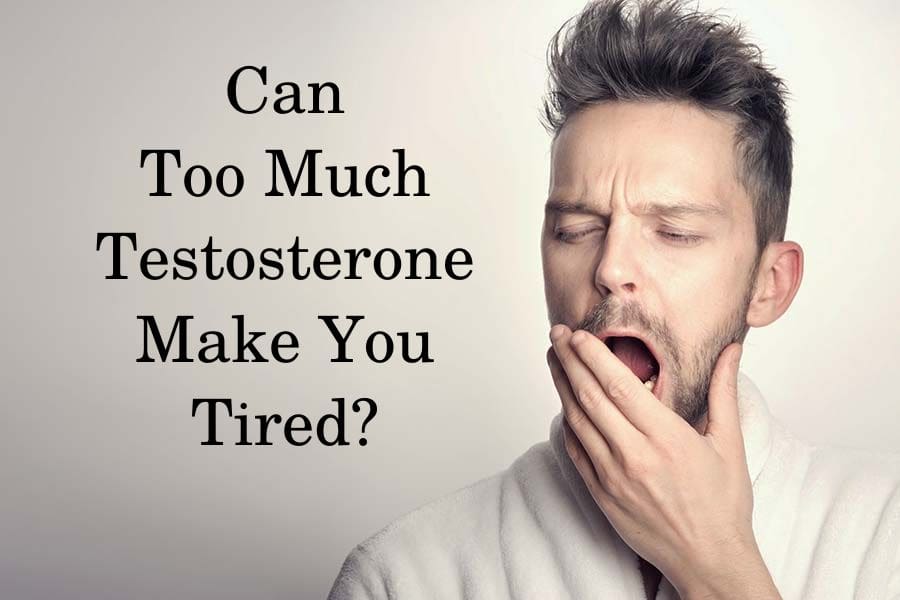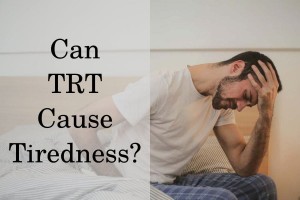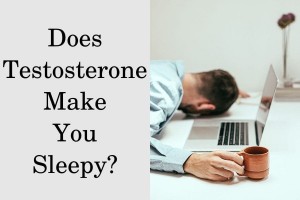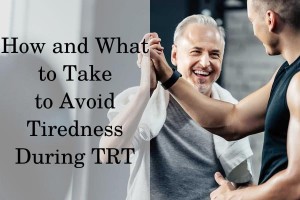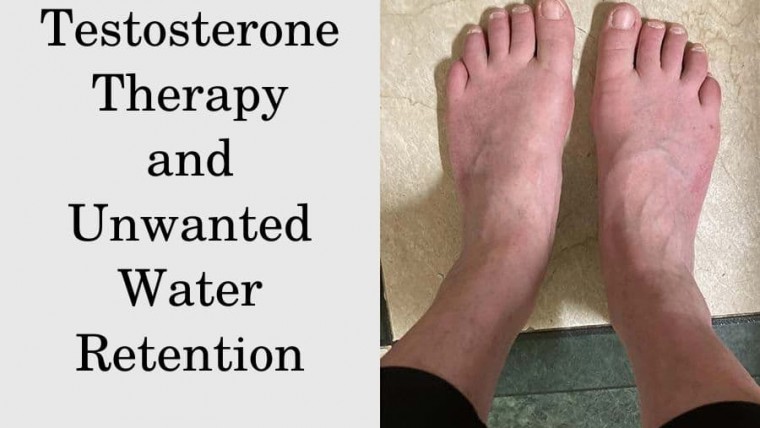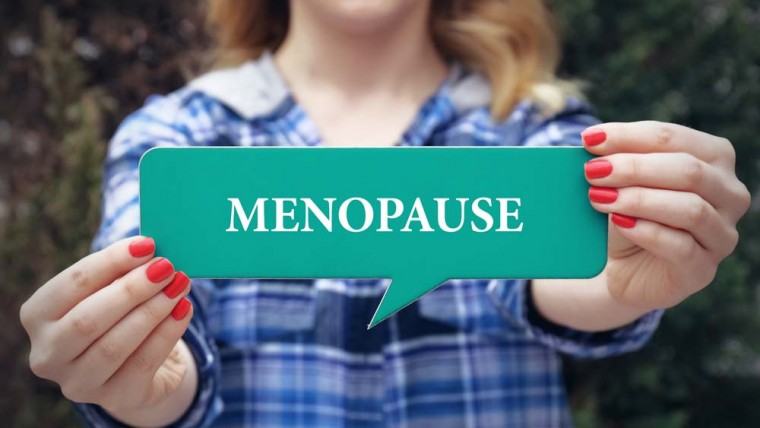In this article
Most people believe that having high testosterone (T) is purely beneficial for men as it helps them to be stronger, more muscular, and more energetic.
While this is true for high T levels, which are still within the physiological norms, having excessively high androgens in your body may also lead to serious adverse effects that may even affect your quality of life.
Having too much testosterone can lead to side effects such as elevated estrogen levels, gynecomastia, testicular atrophy, prostate hyperplasia, lower urinary tract problems, etc.
In some cases, it can also lead to unexpected problems such as reduced energy levels, sleep problems, and fatigue. These issues arise due to the negative effect of excessive T levels on other hormones, as well as the function of certain organs.
How does high T affect energy levels?
Generally speaking, having normal testosterone levels, which fall within the physiological range of 300 – 1000 ng/dl, has a favorable effect on energy levels. In comparison, men with low T often complain of low energy levels, amongst other symptoms.
However, having high T levels that significantly exceed the physiological upper limit of 1000 ng/dl may also have negative effects on energy levels.
That’s mainly due to the effect of excessive testosterone on the balance of other hormones, such as thyroid hormones and estrogens.
Too much testosterone can also affect the function of the prostate and the respiratory system, leading to disrupted breathing during sleep and frequent urination. All these symptoms can reduce sleep quality and lead to daytime fatigue and sleepiness.
Other side effects in men related to having high T can include gynecomastia, acne, oily skin, suppressed testicular function, infertility, and organ enlargement.
The cardiovascular system can also be affected, as studies report heart enlargement in individuals who have excessively high T levels due to steroid abuse. Developing heart disease can also lead to symptoms of fatigue and low energy levels.
Can testosterone therapy make you tired?
Testosterone replacement therapy (TRT) may have a negative effect on your energy levels when taken at high doses. That’s because excessively high testosterone can affect the levels of your thyroid hormones, which play a critical role in regulating energy levels in the body.
The main thyroid hormone is Thyroxine (T4) which transforms its active form into triiodothyronine (T3). T4 and T3 control your body’s metabolism.
When thyroid hormone levels are low, your body’s metabolism slows down, and your energy levels decrease. This can lead to symptoms such as fatigue, weakness, and difficulty concentrating.
Testosterone does not decrease your thyroid hormones directly but affects a protein called thyroid-binding globulin (TBG). T4 is normally transported in the body bound to TBG. The bond is reversible, and the T4 can be easily released to the tissues.
Having high T levels, such as during TRT, leads to a decrease in the levels of TBG, which means more of the thyroxine hormone will remain unbound in the blood plasma.
This effect may initially cause an increase in free T4 levels. However, free T4 suppressed TSH production, which in return lowers total thyroxine levels – both free and TBG-bound.
Even in physiological doses, one study showed that intramuscular testosterone injections led to a 14% reduction in TBG.
The study also reported a reduction in T4 levels, although T3 was not affected. Yet, higher TRT doses which lead to supraphysiological serum T may potentially lead to a significant reduction in both T4 and T3 levels and symptoms such as fatigue.
It’s important to note that these effects occurred after months of high-dose testosterone therapy. Thus, symptoms such as tiredness or fatigue do not occur immediately after a testosterone injection.
High-dose TRT involves taking high amounts of testosterone that exceed the recommendations for the specific form. For example, recommended dosages for injectable testosterone include:
- 50 to 400 milligrams (mg) of testosterone cypionate taken every 2-4 weeks
- 50 to 400 milligrams (mg) of testosterone enanthate taken every 2-4 weeks
- 750 milligrams (mg) of testosterone undecanoate taken every 10-12 weeks
Excessive serum T levels usually occur when a person is abusing testosterone medications illegally or when taking other androgens, such as anabolic steroids.
However, if you are receiving TRT from a legal clinic, your dosage will be controlled by an experienced medical doctor. Thus, experiencing too high T that leads to side effects is highly unlikely.
Can testosterone make you sleepy?
Testosterone therapy may also increase daily fatigue and sleepiness, due to a potentially negative effect on sleep quality and quantity.
Research shows that testosterone may also interact with hormones such as melatonin, which can disrupt normal sleep during the night and cause excessive daytime sleepiness.
One study in men reported that 4 months of testosterone administration in physiological doses significantly suppressed melatonin production during the night, anywhere between 7.2 to 14.5% among the participants.
Melatonin is also known as the sleep hormone, and having adequate melatonin production at night is essential for good sleep
So far, there aren’t any studies investigating the effects of higher TRT doses on melatonin, but elevating serum T even more, may lead to a larger decrease in melatonin and potentiate sleep problems.
In fact, another trial in healthy older men reported that high-dose testosterone treatment reduced total sleep time and disrupted breathing during sleep.
The participants who took TRT slept 1 hour less per night on average. Furthermore, the levels of respiratory disturbance indices increased significantly by approximately seven events per hour.
Thus, the scientists concluded that high-dose testosterone therapy could disrupt sleep and breathing, increase sleep-related hypoxemia, and potentially precipitate obstructive sleep apnea (OSA).
Indeed, having OSA is a strong contraindication for testosterone therapy. That’s because research shows that the therapy can worsen the condition in patients with uncontrolled and severe sleep apnea by affecting the neuromuscular tonus of the airways.
TRT can also increase your metabolic requirements for oxygen and change your body’s response to oxygen deprivation. This means that your body becomes less likely to react if blood oxygen levels decrease while its oxygen needs to increase.
It is important to note that the effect of testosterone treatment on sleep quality and the severity of obstructive sleep apnea depends on the dosage of testosterone but not on the type of TRT.
Since any form of TRT, including topical, pellet, pill, or injections, can lead to supraphysiological serum T levels, then they can all potentially cause disrupted breathing during sleep and sleep disturbances.
How to avoid tiredness and sleepiness during TRT
The best way to avoid symptoms such as tiredness and daytime sleepiness during TRT is to avoid taking excessive doses that lead to supraphysiological serum T levels.
Instead, your dose should be regulated by an experienced medical doctor. They will regularly assign you blood tests in order to monitor your serum T and adjust your dosage for safe and effective therapy.
Your doctor should also check if you have contraindications such as OSA. If your doctor suspects you may have OSA, they will assign you a test called polysomnography.
Polysomnography is a test that you undergo while sleeping. The equipment that will be attached to you while you sleep will monitor your heart, lung, and brain function, breathing patterns, movements, and blood oxygen levels.
When starting TRT, it may take as little as 2-3 weeks to experience the benefits of the treatment. In addition, sleep duration may also decrease within 2 weeks of testosterone therapy, especially if the dosage is too high.
In such cases, decreasing the dose may slightly prolong the time until you experience the first benefits of TRT, but doing so will help avoid any side effects.
If you continue taking high doses of TRT for several months, other hormones, such as thyroid hormone and melatonin, may also become dysregulated, leading to fatigue and sleep problems.
Apart from taking too much testosterone, you may experience daytime sleepiness and fatigue due to a wide range of factors, including an unhealthy lifestyle.
In such cases, you should consider exercising regularly, maintaining a healthy body weight, reducing alcohol consumption, and avoiding stimulants such as caffeine or tobacco, especially soon before going to bed.
What to take to stay awake
Taking melatonin supplements can also help you fall asleep faster and potentially improve your sleep quality.
On the other hand, sleep medications are rarely recommended. They include sedatives and antidepressants, which are meant only for short-term therapy, and some may even lead to increased daytime sleepiness as a side effect.
In order to combat daytime sleepiness and fatigue, supplementing with certain herbal extracts may also come in handy. Examples include Rhodiola Rosea and Panax Ginseng, which are shown in clinical trials to improve energy levels and reduce fatigue.
For example, one study involved 161 young cadets and reported a significant beneficial effect on mental fatigue in those supplementing with Rhodiola Rosea compared to placebo.
Another small trial showed that Rhodiola Rosea ingestion significantly decreased heart rate during warm-up and improved endurance exercise performance by decreasing the perception of effort when compared to a carbohydrate-containing placebo.
Panax Ginseng supplementation was also reported as effective in reducing fatigue and improving the quality of life in healthy subjects. The 52 participants experienced significantly better energy levels with the supplement compared to a placebo.


